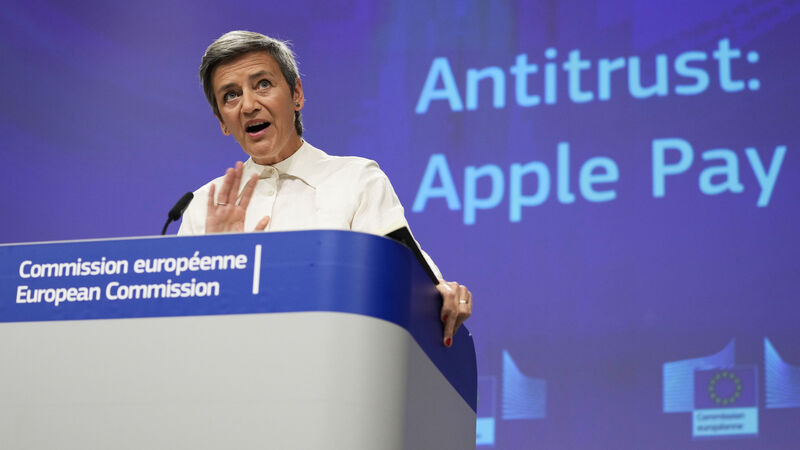Apple offers to open up iPhone tap-to-pay tech in bid to avoid massive EU fines

Apple faces a hefty fine and a ban on App Store rules it allegedly used to thwart music-streaming rivals, in another round of EU competition commissioner Margrethe Vestager’s crackdown on Big Tech.
Apple has vowed to open up its coveted tap-to-pay technology on iPhones to rivals in a bid to sidestep potentially massive European Union competition fines.
The European Commission said the US tech giant has pitched a 10-year offer to give other “mobile wallet” providers access to its closely guarded payments chip on Apple devices.












